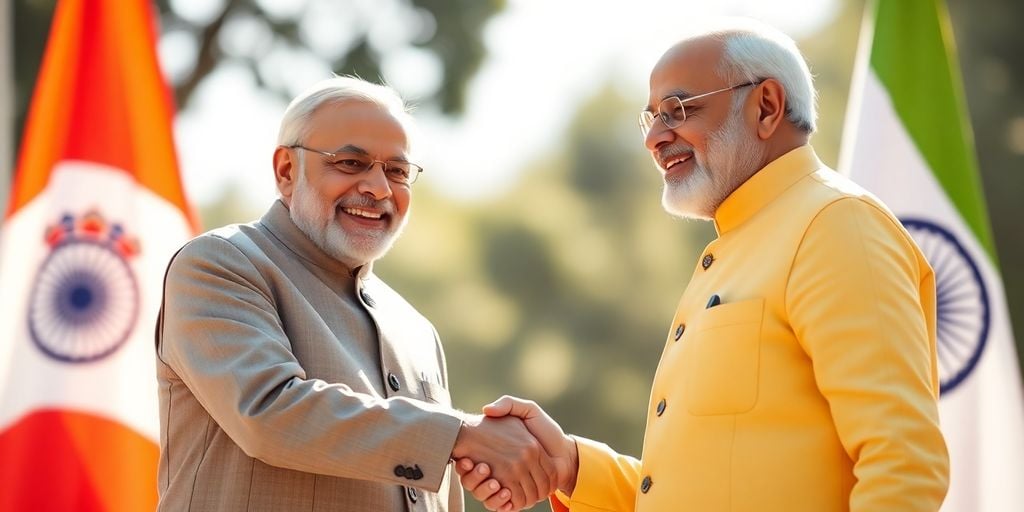Prime Minister Narendra Modi’s historic visit to Croatia on June 18, 2025, marked a new chapter in India-Europe relations. As the first Indian Prime Minister to visit the Balkan nation, Modi’s trip aimed to strengthen bilateral ties, explore new avenues for cooperation across various sectors, and underscore India’s commitment to engaging with the European Union.
A Historic First for Bilateral Relations
Prime Minister Narendra Modi’s arrival in Zagreb was met with a special gesture from Croatian Prime Minister Andrej Plenković, who personally received him at the airport. This visit, the first ever by an Indian Prime Minister to Croatia, signifies a pivotal moment in the diplomatic relationship between the two nations. Modi’s tour, which also included stops in Cyprus and Canada, highlighted India’s strategic outreach to European partners.
Deepening Cooperation Across Key Sectors
During high-level meetings, both leaders emphasized the importance of accelerating bilateral ties. Discussions covered a wide array of sectors, leading to the signing of several agreements and memoranda of cooperation. Key areas of collaboration include:
Defence and Strategic Cooperation: Agreements were made to co-develop defence technologies and expand military exchanges, particularly in niche areas like electronic warfare and drone technology.
Trade and Infrastructure: Indian companies are encouraged to explore opportunities in Croatian shipbuilding, ports, and renewable energy, while Croatia eyes India as a market for pharmaceuticals, IT services, and clean-tech investments. Bilateral trade, which reached $337.68 million in 2023, is expected to grow further.
Technology and Space: India extended an invitation for Croatian tech firms to participate in its Semiconductor Mission, and discussions were held on potential collaboration between ISRO and Croatian academic institutions in satellite navigation and communication technologies.
Agriculture and Culture: Memoranda were signed to boost cooperation in agriculture and cultural exchanges, including a proposal for a “Festival of India” in Croatian cities and an agreement between ICCR and the University of Zagreb for Indology studies.
Croatia’s Strategic Importance for India
Croatia, a member of the European Union and NATO, holds significant strategic value for India. Its location on the Adriatic Sea coastline positions it as a crucial gateway to Central and Eastern Europe. Croatian ports like Rijeka, Split, and Ploče are seen as potential hubs within the ambitious India-Middle East-Europe Economic Corridor (IMEC), offering an alternative trade route and connecting India with the Three Sea Initiative countries.
Cultural Diplomacy and Shared Heritage
The visit also underscored the deep-rooted cultural and civilizational connections between India and Croatia. Prime Minister Plenković presented Modi with a reprint of Filip Vezdin’s Sanskrit Grammar, the first printed Sanskrit grammar written in Latin in 1790 by a Croatian scholar. Modi also visited Zagreb’s historic Upper Town and laid a wreath at the Monument to the Homeland, honoring Croatian martyrs.
Key Takeaways
First-ever visit by an Indian Prime Minister to Croatia, marking a historic milestone.
Strengthened cooperation in defence, trade, technology, agriculture, and culture.
Croatia’s strategic role as a gateway to Central and Eastern Europe and a potential hub for the IMEC.
Emphasis on cultural ties, including the presentation of a historic Sanskrit grammar reprint.
Commitment to dialogue and peaceful conflict resolution, with both nations condemning terrorism.
Looking Ahead
While the visit laid a strong foundation, both nations acknowledge the need for sustained effort to realize the full potential of their partnership. The focus will now be on implementing the signed agreements and scaling up economic engagement to match the growing diplomatic momentum. This visit signals India’s evolving foreign policy, which increasingly seeks to forge strong, diversified partnerships beyond traditional alliances.
Sources
